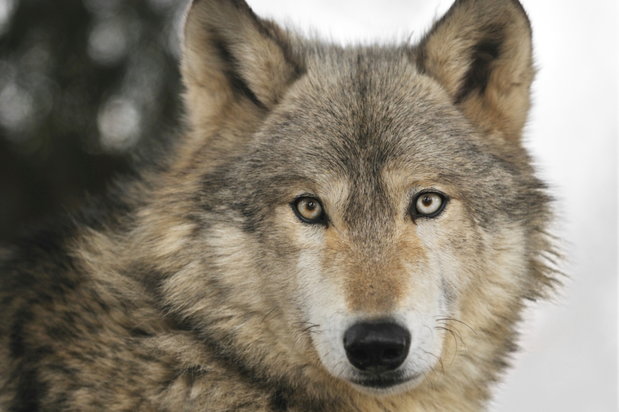Recovery isn’t so much about self-improvement as it is about self-acceptance. Accepting the poor choices one has previously made in addiction, the consequences of one’s actions and the new journey that lies ahead. This profound realization, however, doesn’t always come on its own. The process first requires truly connecting to oneself, which can be a difficult thing to do in today’s busy world.
One place that remains relatively unaffected by the noise of modern culture is nature. With no pretense or expectations in the wild, things simply exist and run its course. Wolf Connection, a program that rehabilitates wolves that in turn rehabilitate people, knowingly taps into this primal healing power and uses it to minister to those who need it most.
On a hot, humid day in Acton, Calif., Lead of Programs and Human Services Giulia Cappelli walks me through the outdoor complex where a total of 27 wolfdogs call home as well as the core principles that bind the program together. The air is muggy and the wolfdogs are sprawled under wherever there is shade in their kennels. Giulia is a gentle and soft-spoken woman, carrying with her an air of self-assured authenticity. As she talks about the program, her eyes seem to speak more endearingly than her words. “What’s lost in humans is connection—connection to being alive. If you take a look at the wolves, you’ll see that they are not into doing, but into being.” Currently, the wolves are into being cool.
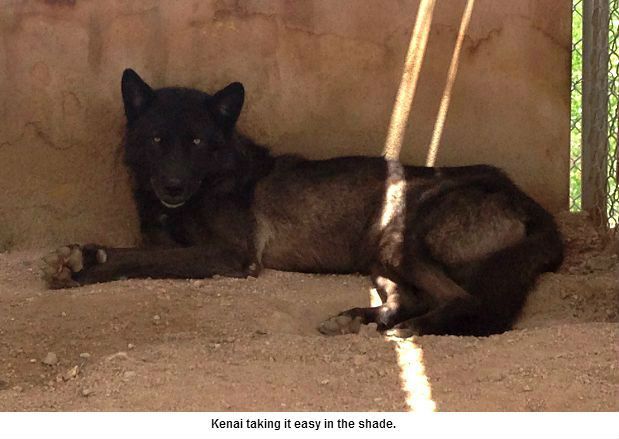
As we walk through the complex, Giulia shares a bit about each wolf. Kenai, a black high wolf-content hybrid with piercing yellow eyes, decidedly observes from a corner as his strong wolf instinct makes him shy around new people. Further down the way is Neo, a curious and sociable wolfdog with light grey fur, who runs around excitedly as we approach and then promptly lies down for a good belly rub. He shares a kennel with Bandit, an older and spunky wolf who, when given the opportunity, is known to rile up the rest of the pack. Finally, I meet Maya, a white Arctic wolfdog who has a calming presence but doesn’t hesitate to snuggle and lick the new company.
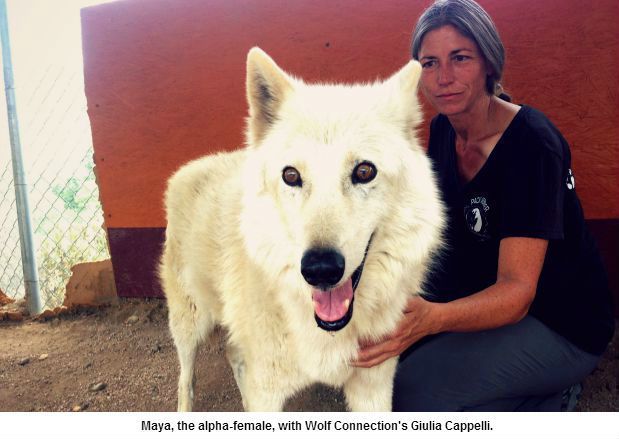
Giulia refers to Maya as the alpha-female. “She’s wise; she’s grounded; she knows who she is,” she explains. “But in her past, she suffered some trauma.” Maya, a natural leader to the other pack members, was present when both her mother and father were killed on two separate occasions. However, despite her loss, she continued to heal and exhibited true alpha presence in the process. “By telling her story and having participants meet her and experience her groundedness in comparison to some of the other animals, that’s one way that they can start to discern, begin to understand.”
Discern and understand what, exactly? The answer, at least according to Wolf Connection, is yourself. By interacting with these creatures who’ve gone through their unique set of challenges, those struggling with addiction are able to connect with their own situation, see the areas that they need to work on in themselves and learn to respect their own journey. That in turn brings the individual to a better understanding of the role he or she plays in the community, or what the organization refers to as the “wolfpack.”
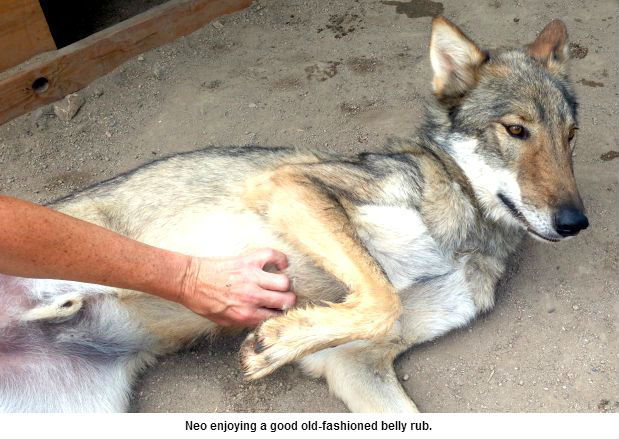
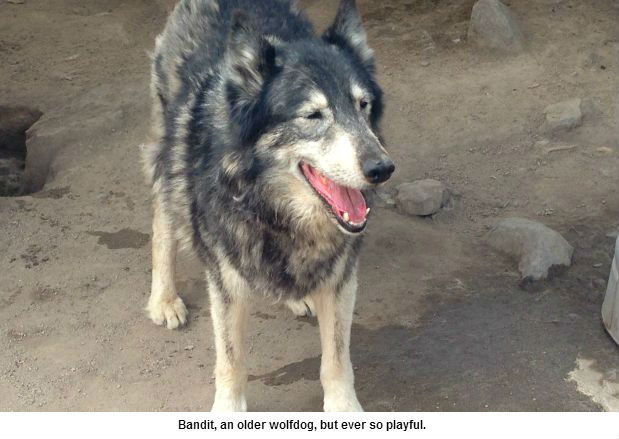
With so much self-judgment that goes into addiction and recovery, the program’s ultimate goal is to help the individual develop an understanding of all the roles within a wolfpack, identify their own current role in life and find a sense of respect for where they are right now. There are many ways the program fosters this type of growth. From activities such as group hikes with the wolfdogs to assisting in animal care, participants in recovery can spend anywhere from four hours to a whole day interacting with these magnificent animals.
At the end of the day, staff and visitors all sit down and share a meal together. Some pitch in to cook while others help to set up. This is an interactive moment where everyone has the chance to exercise their role in the wolfpack as well as assess how well they are engaging with each other. Questions such as “Where do I fit in?” “How do we treat each other in those roles?” and “What’s my idea of being an alpha?” are all applicable ideas to explore. Regardless of their task, the communal act of getting dinner ready and enjoying the food together shows that every individual’s role is valued and important. As Giulia asserts, “We’re a wolfpack. We’re always working together.”

There’s no magic trick when it comes to recovery. Instead, much like everything else, it’s part of a bigger journey. Wolf Connection is one of many ways that an individual can learn to be at home with their true selves but, even then, it’s more about “planting seeds” than establishing change. “Not everyone is ready to touch what they need to touch,” says Giulia. “To heal what’s needed to heal. It may take someone five years; it may take another person a month. My expectation is to honor their timing.”
This timeline is a mysterious and uncontrollable aspect of every individual’s journey. However, when the moment arrives, the shift is visible. A cognitive change occurs and, through the eyes of the wolf, the person is finally able to see the value of his or her own wisdom. Slowly, as the debris of pain and hurt fall away, there’s a pure connection to the self. A self that was there all along but was once buried in the throngs of addiction. A self now risen to the surface, proud and unharmed, fiercely alive and howling at the moon.
**
To learn more about Wolf Connection, visit their official website.
If you or someone you know is seeking help with addiction, please visit our directory of treatment centers or call 866-606-0182 to start the path to recovery today.

